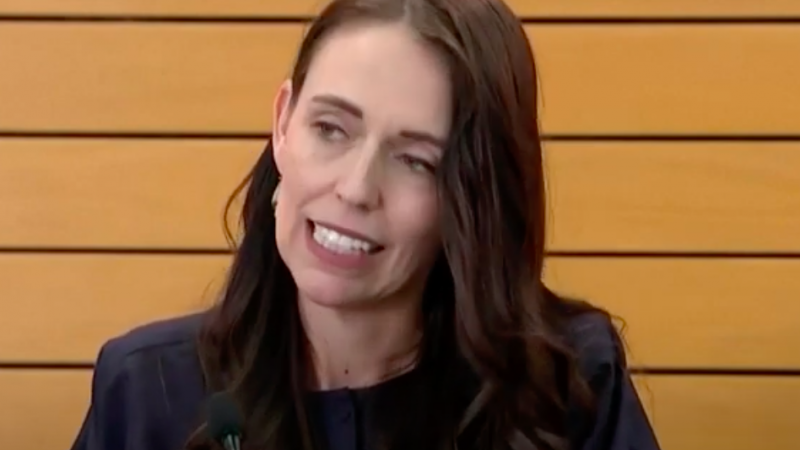'I know from my own experience that centring women is not easy to do.'

Political tributes and commentary have been flooding in about Jacinda Ardern following her resignation – a woman who has undoubtedly been unafraid of being her authentic self and to lead on the world stage in her own style – compassionate, empathetic, intelligent, and principled. She hasn’t felt the need to emulate the macho, egocentric primarily male politicians that dominate the world stage.
In fact, Ardern has centred women in many of her policy decisions putting their concerns centre stage in making legislative changes. In 2018, when I was Shadow Minister for Equalities, I proposed a package protecting women, inspired by what Ardern did in New Zealand. In my Labour Party Conference speech, I announced the intention to introduce new employment laws requiring employers to have a domestic abuse policy and provide up to 10 days leave for domestic abuse victims. These 10 days are often a matter of life and death for those fleeing violence. Imagine – a policy that is designed to proactively support those who are often vulnerable and invisible.
I know from my own experience that centring women is not easy to do. Because for women it is different – not because we find the pressures too much, or “we can’t have it all”, but because on top of the pressures of their roles in politics, there is almost daily criticism, personal abuse and misogyny. And it is relentless and exhausting, exacerbated by social media and a culture where women are held to higher standards than men. It is a menacing ghost that sits on our shoulders, threatening our mental and physical safety.
In a healthy democracy, we are all free to disagree with the politics, have robust debates and hold politicians to account – but without it opening the floodgates to personal sexist and racist abuse. Jacinda’s Auckland office was left with a shattered window after a sword attack. I had to close my own constituency office partly due to a shattered window and threats to me and my staff.
Despite being a sharp politician, skilled in crisis management, who was transparent and held regular open media briefings, Ardern was abused online for her appearance, and being a woman who dared to leave the kitchen – abuse which curiously is often absent from male politicians’ social media.
In 2019, her response to the Christchurch Mosque attacks which killed 51 people was firm and centred the victims of the attack, steering away from language of retribution and division.
Her words emphasised that the real community in New Zealand were the victims of the attack and the attacker was not. She said: “They are us. The person who has perpetuated this violence against us, is not….they have no place in New Zealand.”
And she didn’t just respond with empty words, she acted decisively and swiftly to make real change – tightening New Zealand’s gun laws to ban military-style semi-automatic weapons just six days after the attack. Think about how gun law changes are long overdue in America. She displayed a rarely seen compassion and raw emotion when she met survivors and victims, wearing a hijab in respect and solidarity. Her kindness can be seen clearly in the photos from that time. She was warm. She was compassionate. And it was exactly what the community needed.
Her response also included campaigning against extremist violent content online urging governments and tech giants around the world to commit to combatting it. Something we also need for harassment and abuse. It takes strength to fight daily attacks, and it has been moving to see Ardern do just that and continue to inspire other women in politics – including the next generation of women leaders.
Ardern was robust and strategic in leading her country’s response to Covid. She pursued a strategy of elimination of the virus, acting quickly to close borders and introduce a lockdown, keeping infections and deaths from Covid low. I might not have agreed with all her actions, but her decisiveness was admirable.
She turned her exasperation of misogyny into wit. When she met the Finnish prime minister, Sanna Marin, she was asked whether they’d only met because they were both young female prime ministers. “I wonder whether or not anyone ever asked Barack Obama and John Key if they met because they were of similar age” and went on to discuss detail of the economies of the 2 countries and trade deals in stunning depth.
She has given hope and optimism to many women like me in politics. I enjoyed listening to her. By showing the world that there is a different way to lead and govern than the outdated macho male politics of the past she will undoubtedly continue to inspire many others to consider working in politics.
I look forward to seeing what she chooses to do next. And I will continue to work to ensure that women can work in a more inclusive and less abusive environment, so that future generations who feel their tanks are nearly empty have strong supportive systems to refill them and that politics changes for the better.
To reach hundreds of thousands of new readers we need to grow our donor base substantially.
That's why in 2024, we are seeking to generate 150 additional regular donors to support Left Foot Forward's work.
We still need another 117 people to donate to hit the target. You can help. Donate today.



